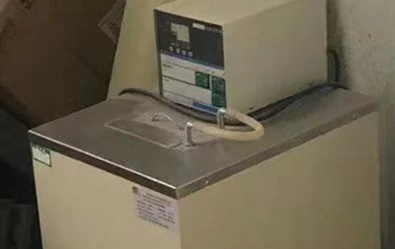loading...
- No. 9, Xingyuan South Street, Dongwaihuan Road, Zaoqiang County, Hengshui, Hebei, China
- admin@zjcomposites.com
- +86 15097380338
- Welcome to visit our website!
water softener
Understanding Water Softeners An Essential Guide
Water softening is a crucial process, especially for households and businesses where hard water can lead to significant issues. Hard water contains high levels of minerals, primarily calcium and magnesium, which can cause problems such as scale buildup in pipes, decreased efficiency of appliances, and even skin irritations. A water softener is a device designed to alleviate these problems by removing these hard minerals and replacing them with sodium ions, resulting in softer water.
The operation of a water softener is based on a process called ion exchange. In a typical water softening system, hard water flows through a tank filled with resin beads that are charged with sodium ions. As the hard water passes through the resin, the calcium and magnesium ions in the water are attracted to the resin and swap places with the sodium ions. As a result, the water that emerges from the system is soft and free of mineral hardness.
One of the essential advantages of using a water softener is the reduction of scale buildup. Over time, hard water can lead to deposits in pipes, faucets, and appliances such as dishwashers and water heaters. This buildup can decrease water flow and efficiency, leading to costly repairs and replacements. By utilizing a water softener, homeowners can prolong the lifespan of their plumbing and appliances, saving money in the long run.
water softener

In addition to protecting plumbing, softened water has numerous benefits for personal care. Individuals with sensitive skin often find that hard water exacerbates dryness and irritation. Softer water can lead to improved skin conditions and a more pleasant bathing experience. Moreover, when washing clothes, softened water helps detergents work more effectively, resulting in cleaner laundry and brighter colors. Softened water is gentler on fabrics, reducing wear and tear and prolonging the life of clothing.
It is also worth noting that water softeners require maintenance, including periodic regeneration of the resin beads. This is done by flushing the system with a concentrated salt solution, allowing the beads to release the calcium and magnesium ions they have absorbed and replenish their sodium content. Regular monitoring and maintenance ensure effective performance and longevity of the water softener.
While there are many benefits to water softening, it is essential to consider the impact of added sodium on health, particularly for individuals on sodium-restricted diets. There are alternative methods of softening water, such as reverse osmosis systems and magnetic softeners, which may suit specific needs better, without increasing sodium levels.
In conclusion, a water softener can greatly enhance the quality of water in your home, providing benefits that range from protecting plumbing fixtures to improving personal care routines. By understanding how these systems work and their advantages, homeowners can make informed decisions about whether a water softener is a worthy investment for their property. With proper installation and maintenance, a water softener can lead to a more efficient, effective home environment.
-
Transform Your Spaces with FRP Grating SolutionsNewsNov.04,2024
-
The Versatility and Strength of FRP RodsNewsNov.04,2024
-
The Excellence of Fiberglass Water TanksNewsNov.04,2024
-
The Benefits of FRP Grating for Your ProjectsNewsNov.04,2024
-
Elevate Your Efficiency with FRP Pressure VesselsNewsNov.04,2024
-
Welcome to the World of FRP Pressure VesselsNewsOct.12,2024
-
Unveiling the Future of Filtration: Why FRP Filter Vessels are a Game ChangerNewsOct.12,2024
